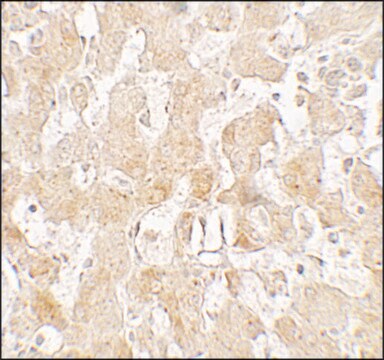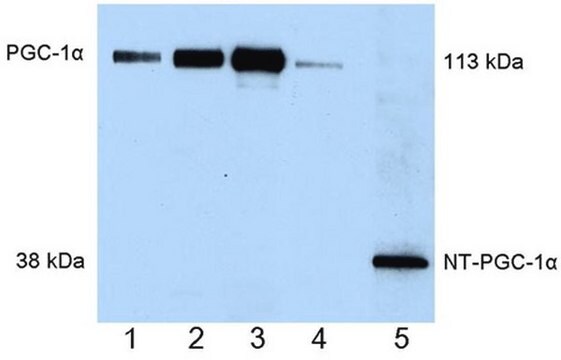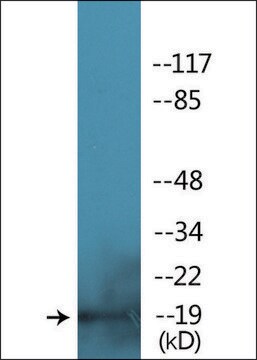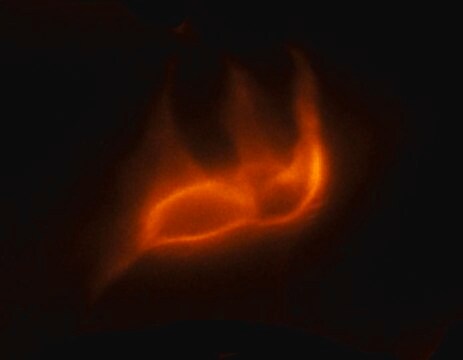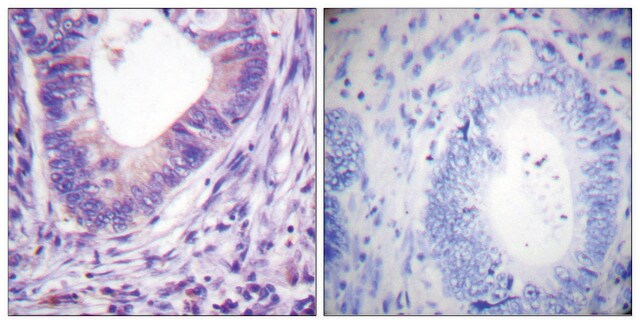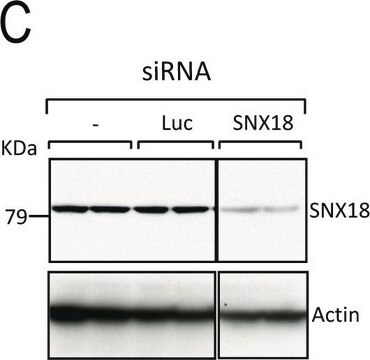U6382
Anti-UCP-1 antibody produced in rabbit
affinity isolated antibody, buffered aqueous solution
Sinonimo/i:
Ucp1 Antibody, Ucp1 Antibody - Anti-UCP-1 antibody produced in rabbit, Anti-Uncoupling Protein 1
About This Item
Prodotti consigliati
Origine biologica
rabbit
Livello qualitativo
Coniugato
unconjugated
Forma dell’anticorpo
affinity isolated antibody
Tipo di anticorpo
primary antibodies
Clone
polyclonal
Forma fisica
buffered aqueous solution
PM
antigen ~32 kDa
Reattività contro le specie
mouse, human, rat
Confezionamento
antibody small pack of 25 μL
tecniche
immunohistochemistry (formalin-fixed, paraffin-embedded sections): 1:500 using protease-digested sections of mouse brown adipose tissue.
western blot: 1:1,000 using mitochondrial extract of rat brown adipose tissue
N° accesso UniProt
Condizioni di spedizione
dry ice
Temperatura di conservazione
−20°C
modifica post-traduzionali bersaglio
unmodified
Informazioni sul gene
human ... UCP1(7350)
mouse ... Ucp1(22227)
rat ... Ucp1(24860)
Descrizione generale
Specificità
Immunogeno
Applicazioni
Azioni biochim/fisiol
Stato fisico
Esclusione di responsabilità
Non trovi il prodotto giusto?
Prova il nostro Motore di ricerca dei prodotti.
Codice della classe di stoccaggio
10 - Combustible liquids
Classe di pericolosità dell'acqua (WGK)
WGK 3
Certificati d'analisi (COA)
Cerca il Certificati d'analisi (COA) digitando il numero di lotto/batch corrispondente. I numeri di lotto o di batch sono stampati sull'etichetta dei prodotti dopo la parola ‘Lotto’ o ‘Batch’.
Possiedi già questo prodotto?
I documenti relativi ai prodotti acquistati recentemente sono disponibili nell’Archivio dei documenti.
I clienti hanno visto anche
Il team dei nostri ricercatori vanta grande esperienza in tutte le aree della ricerca quali Life Science, scienza dei materiali, sintesi chimica, cromatografia, discipline analitiche, ecc..
Contatta l'Assistenza Tecnica.

